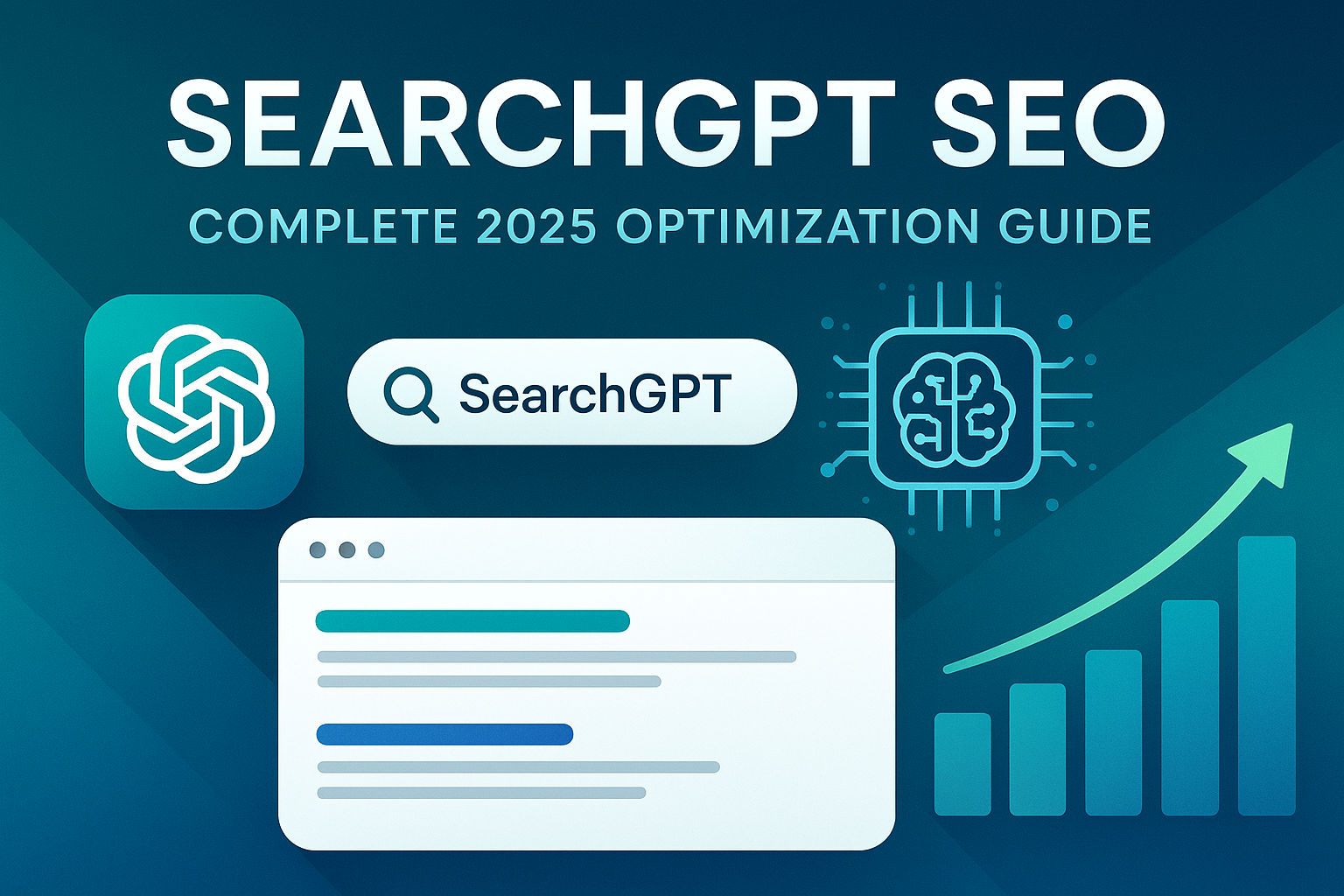
Traditional SEO is dead. SearchGPT doesn't care about your backlinks.
The SEO community is having a crisis:
"Recently, my boss asked me to do generative engine optimization (GEO) or AI search optimization for our website. Is this actually a thing that works, or just the latest SEO buzzword?" - r/SEO
"So, how do we do AI Search Optimization? The traditional metrics don't seem to apply. Social sentiment and online discussions seem to carry more weight than ever." - r/SEO
"If you want to improve your ranking on SearchGPT, Bing SEO is the best way to do it. But reviews and social proof matter way more than traditional backlinks." - r/SEO
Here's the brutal truth: While you've been obsessing over keyword density and link building, SearchGPT launched in October 2024 and completely ignored your carefully crafted SEO strategy.
SearchGPT doesn't rank web pages. It recommends businesses.
The Problem: Everyone's Optimizing for the Wrong Algorithm
The SEO industry is scrambling:
"Getting insights in the algorithms, possible weight per factor and other, will help for future searchgpt SEO. Any ideas on this? The ranking factors are completely different from Google." - r/SEO
Here's what SearchGPT actually looks at when deciding which businesses to recommend:
What SearchGPT Ignores (That Google Loves)
- Your perfectly optimized title tags
- Your 2,000+ word pillar content
- Your expensive backlink campaign
- Your technical SEO audit scores
What SearchGPT Actually Ranks On
- Wikipedia mentions - Are you referenced in authoritative sources?
- G2 and Clutch listings - Do review sites know you exist?
- Reddit discussions - What do real people say about your industry?
- Industry awards and recognition - Do trade publications mention you?
- Social proof signals - Are you part of the conversation?
The difference is stark:
The Reddit Reality Check
The marketing community is starting to realize traditional SEO tactics don't work:
"AI search optimization might require a different set of tactics alongside traditional SEO, digital PR, and other forms of marketing. The algorithms are fundamentally different." - r/GrowthHacking
"Do you buy into Generative Search Engine Optimization (GEO)? The field is evolving so fast, we need to stay ahead of algorithm changes." - r/SEO
This isn't theoretical anymore. Test it yourself:
- Go to ChatGPT
- Search for "best [your industry] software"
- See if your business appears in the recommendations
If you're not there, your traditional SEO strategy is worthless for AI search.
What Actually Works: The Authority Signal Strategy
Based on analysis of SearchGPT recommendations, businesses that consistently appear have these commonalities:
The Wikipedia Test
Companies recommended by SearchGPT almost always have Wikipedia entries or mentions. Not because Wikipedia is high-authority for SEO, but because SearchGPT sees it as an authoritative source about what companies actually matter.
The Review Platform Dominance
SearchGPT heavily weights:
- G2 reviews and ratings
- Trustpilot customer feedback
- Better Business Bureau accreditation
- Industry-specific review sites
The Social Proof Multiplier
SearchGPT monitors conversations across:
- Reddit industry discussions
- LinkedIn professional posts
- Twitter/X mentions and trends
- Quora question responses
The "Best Of" List Factor
SearchGPT prioritizes businesses mentioned in:
- Industry comparison articles
- "Top 10" and "Best of" lists
- News articles about your sector
- Trade publication features
The Implementation Gap
Most businesses are completely unprepared:
"Is generative engine optimization (GEO) or AI search optimization really a thing? I'm seeing more clients ask about it but not sure if it's worth focusing on." - r/SEO
Here's what you should do immediately:
Week 1: Authority Audit
- Search your industry terms in ChatGPT
- Document which competitors appear
- List their authority signals you lack
- Identify gaps in your online presence
Week 2: Review Blitz
- Get listed on relevant review platforms
- Launch systematic review collection
- Respond to all existing reviews professionally
- Feature positive reviews on your website
Week 3: Mention Strategy
- Apply to relevant "best of" lists
- Submit to industry directories
- Pitch inclusion in comparison articles
- Build relationships with industry analysts
Week 4: Social Proof Building
- Participate authentically in Reddit discussions (see our Reddit marketing guide)
- Share insights on LinkedIn and Twitter
- Answer questions on Quora
- Engage with industry conversations
Why Most SEO Agencies Will Fail at This
Traditional SEO agencies are built around:
- Keyword research and content optimization
- Link building and technical audits
- Ranking tracking and traffic analysis
SearchGPT optimization requires:
- Reputation management and social proof building
- Industry relationship development
- Authority signal cultivation
- Real-time conversation monitoring
These are fundamentally different skill sets.
The Opportunity Window
The SEO community is just waking up to this shift:
"Why You Need to Track AI Search in 2025: Is anyone doing AI search optimization (GEO)?" - r/SEMrush
Most businesses haven't started optimizing for SearchGPT yet. The ones that start now will dominate recommendations before this becomes common knowledge.
The Bottom Line
Your expensive SEO strategy optimizes for yesterday's algorithm. SearchGPT is tomorrow's search reality, and it doesn't care about your keyword strategy.
The companies winning in SearchGPT have:
- Strong presence on review platforms
- Mentions in industry publications
- Active participation in professional discussions
- Recognition from trade organizations
- Consistent social proof across platforms
The companies losing have:
- Perfect technical SEO scores
- Hundreds of optimized blog posts
- Expensive backlink portfolios
- First-page Google rankings
Which category are you in?
Ready to optimize for AI search? Toffu's automation platform can help streamline review collection, social listening, and authority building while you focus on strategy. Check out our competitor analysis tools to see what authority signals your competitors have that you're missing.

